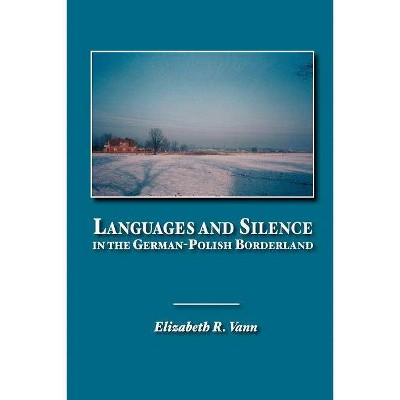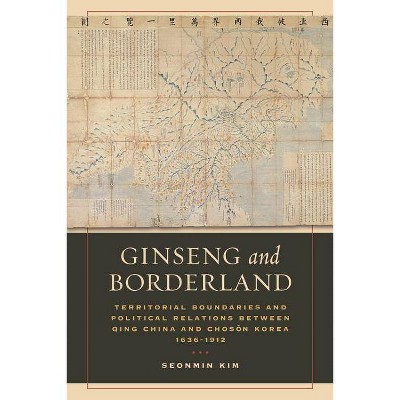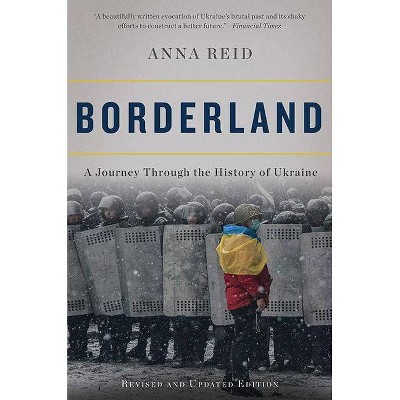Languages and Silence in the German-Polish Borderland - by Elizabeth R Vann (Paperback)

Similar Products
Products of same category from the store
AllProduct info
<p/><br></br><p><b> About the Book </b></p></br></br>This book focuses on a region of Silesia where the inhabitants speak three languages: Polish, German, and Silesian. The author analyzes the different ways that the inhabitants use the three languages and the situational, associational, political, and historical reasons they choose to speak whatever language they are speaking at any given moment.<p/><br></br><p><b> Book Synopsis </b></p></br></br><p><em>Languages and Silence </em>is an ethnography that focuses on a region of Silesia near Opole where the inhabitants speak three languages: Polish, German, and Silesian. The author spent several different extended periods of time living in a town that she calls Dobra, and she attempts to analyze the different ways that the inhabitants use the three languages and the situational, associational, political, and historical reasons they choose to speak whatever language they are speaking at any given moment.</p> <p>Elizabeth R. Vann describes interpersonal situations in which a speaker uses specific words in one language or another for a particular purpose. Among the study's conclusions are that Silesian is associated with social familiarity and playfulness, while Polish is an expository register that makes a relatively intense, unidirectional claim on addressees' attention, and German is used as "a language of conflict."Additional dimensions of contrast have to do with speakers' "evaluations of cultural and temporal distance," with Silesian indicating cultural closeness (identity as well as indigeneity or archaism), Polish greater cultural distance (and fanciness), and German a farther extreme of otherness.</p> <p>The author also argues that the analysis of this linguistic complexity can tell us a lot both about how individuals construct their ethnic and national identities, and how that construction is interwoven with psychology, politics, and history.</p><p/><br></br><p><b> Review Quotes </b></p></br></br><br><p>Advance Praise for <em>Languages and Silence in the German-Polish Borderland</em></p> <p>"<em>Languages and Silence</em> contains important insights into the nature of national and ethnic affiliation, especially under conditions where state boundaries change--and how these dynamic relationships can be charted through language. Silesia is a fascinating case because of the intersection of three languages. The author's characterization of the region as a kind of blank space between clearly bounded places forces us to rethink conventional understandings of nation-states and associated national identities divided by clear lines." --Marysia Galbraith, University of Alabama</p> <p>"Languages and Silence is a beautifully crafted text, which deals with politically, ideologically, and theoretically complex issues of identity in the borderlands where language and practices of language use both reflect and perform identities the negotiation of which in Silesia has never been a neutral choice. The text is ethnographically rich, theoretically solid, and a pleasure to read." --Janina Fenigsen, Northern Arizona University</p><br>
Price History
Price Archive shows prices from various stores, lets you see history and find the cheapest. There is no actual sale on the website. For all support, inquiry and suggestion messages communication@pricearchive.us




















